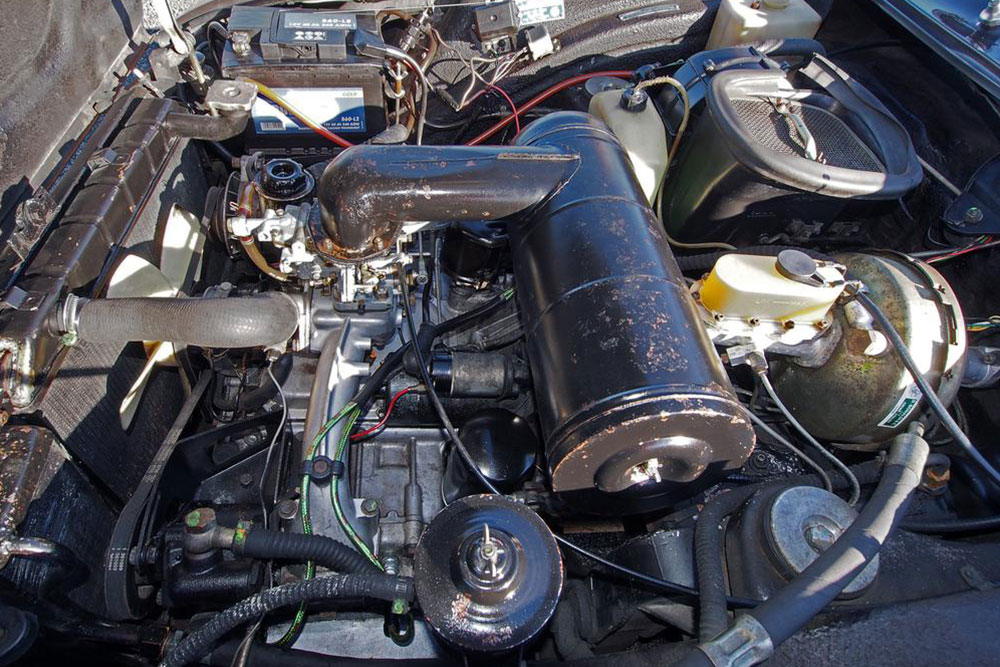Essential Signs Indicating It's Time for an Oil Change in Your Vehicle
Regular oil changes are essential for vehicle health. Recognizing signs like engine noises, dark oil, exhaust fumes, or warning lights can prevent costly repairs. This comprehensive guide highlights key indicators that your vehicle needs an oil change—protecting your engine, enhancing performance, and ensuring safety on the road. Stay vigilant and maintain a proactive maintenance routine for a longer-lasting, reliable car.

Essential Signs Indicating It's Time for an Oil Change in Your Vehicle
Keeping your vehicle's engine in optimal condition depends heavily on timely oil changes. While many vehicle owners associate oil changes primarily with improved fuel efficiency, the benefits extend far beyond that. Regularly servicing your engine oil not only helps improve fuel economy but also plays a vital role in protecting essential engine components, reducing wear and tear, and maintaining overall vehicle performance. Recognizing the early warning signs that your vehicle needs an oil change is crucial for preventing costly repairs, enhancing engine longevity, and ensuring safety on the road.
This comprehensive guide highlights the most common and significant indicators that signal your vehicle is due for an oil change. By paying attention to these signs, you can maintain your vehicle’s health and avoid unnecessary breakdowns. Let's dive into the key symptoms that should prompt you to schedule an immediate oil service.
Unusual Engine Noises
One of the earliest signs that your vehicle may need an oil change is the presence of abnormal sounds coming from the engine. Engine oil acts as a lubricant, forming a protective layer between moving parts to minimize friction. When the oil becomes dirty or deteriorates over time, its lubricating properties diminish. As a result, you may notice a noticeable increase in engine noise, especially knocking or metallic sounds during operation. These noises can indicate that engine components are rubbing directly against each other due to insufficient lubrication, which can lead to serious damage if not addressed promptly.
Ignoring such sounds can cause increased wear on pistons, valves, and other vital parts, ultimately leading to costly repairs or engine failure. Therefore, if your engine sounds louder than usual or produces knocking sounds, it’s crucial to have your vehicle inspected by a professional mechanic to confirm whether an oil change is necessary.
Dark, Thick, and Contaminated Oil
Another clear sign that your vehicle requires an oil change is the appearance of the engine oil itself. When you check your oil level with the dipstick, fresh oil typically appears translucent with a light amber hue. Over time, as dirt, debris, and combustion by-products accumulate, the oil begins to darken, thicken, and develop a gritty or sludge-like consistency. This contamination reduces the oil’s ability to flow smoothly and lubricate engine parts effectively.
Regularly inspecting your oil and replacing it when it turns dark or thick is essential for maintaining optimal engine performance. Using contaminated oil can cause increased friction, overheating, and accelerated engine wear. Therefore, monitoring the color and consistency of your oil can help prevent potential damage and prolong your vehicle's lifespan.
Excessive Exhaust Smoke
The emissions coming from your exhaust can also reveal much about your engine’s health. If your vehicle begins to emit excessive smoke or fumes, it may indicate that the engine oil is old or contaminated, impairing combustion efficiency. Vehicles with clean, well-maintained oil typically produce minimal visible emissions. Conversely, rising fumes or smoke can suggest that the oil is no longer providing proper lubrication or is burning inside the engine, which leads to increased emissions.
This problem not only harms the environment but can also signal underlying engine issues that need urgent attention. In cases of noticeable exhaust fumes, scheduling an oil change is a straightforward and effective step to restore engine performance and reduce harmful emissions.
Dashboard Warning Lights
Most modern vehicles are equipped with dashboard warning indicators that alert drivers to potential engine problems. The check engine light or emission control warning light is particularly relevant for oil-related issues. When these lights illuminate, it often points to concerns related to engine oil quality, such as low oil pressure, oil temperature anomalies, or contamination.
Responding promptly by checking your oil level with the dipstick or taking your vehicle to a mechanic for diagnostics can prevent further damage. An early oil change, guided by these warning signals, can restore proper lubrication, improve engine efficiency, and potentially save you from expensive repairs down the line.
In conclusion, maintaining a regular schedule for oil changes based on your vehicle manufacturer’s recommendations and paying close attention to these signs can significantly extend the lifespan of your engine. Whether it’s unusual engine noises, dark oil, exhaust fumes, or dashboard alerts, addressing these issues early can save you money, improve performance, and ensure your vehicle remains dependable for years to come. Always prioritize professional inspections when in doubt and adhere to your mileage or time intervals for oil service to keep your vehicle running smoothly and safely.





